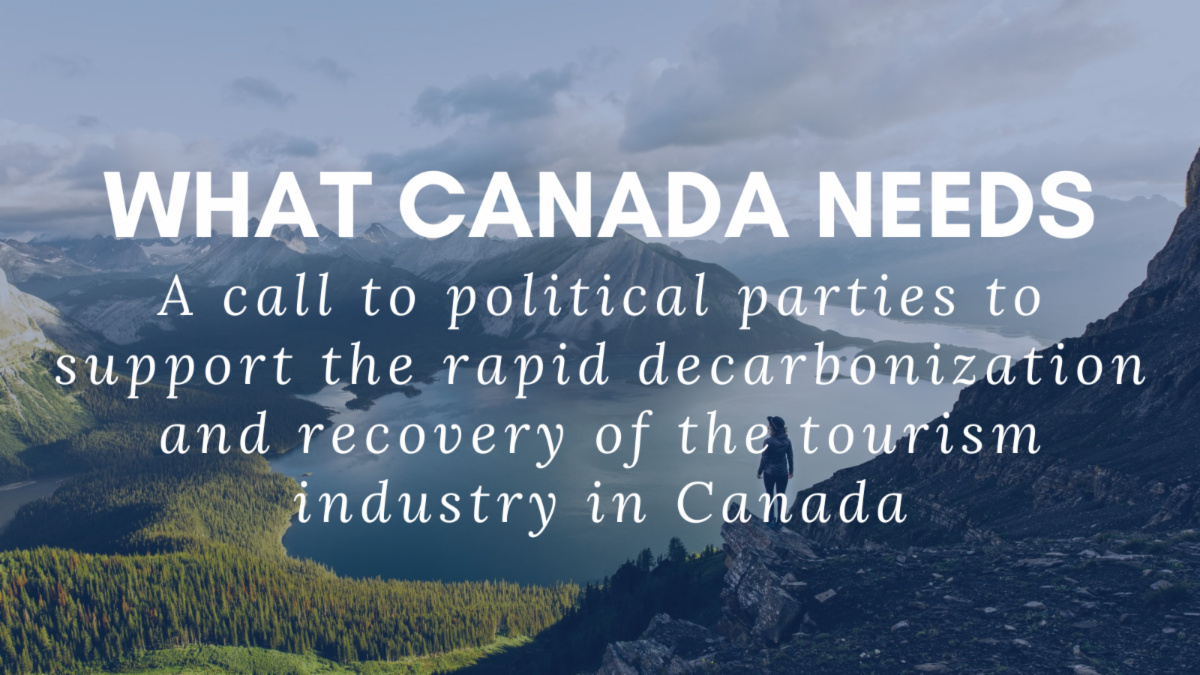What Canada Needs: A Call To Political Parties
By Angela Nagy, CEO, GreenStep Solutions
With the most recent release of the Intergovernmental Panel on Climate Change (IPCC) Sixth Assessment Report, Climate Change 2021: The Physical Science Basis, the warning is clear: Earth is warming faster than previously thought, and unless there are immediate, rapid and large-scale reductions in greenhouse gas emissions, preventing irreversible warming and ultimate planetary catastrophe will be beyond reach.
If that doesn’t hit home, most of Canada’s populated areas are currently being impacted by an unprecedented level of fires, smokey skies, and poor air quality, and we know incidents of droughts, fires and floods will only worsen over time with climate change. Several Canadian tourism destinations and businesses, already devastated by the COVID-19 pandemic, are now contending with cancellations due to forest fires, and thousands of Canadian businesses and families on evacuation order or notice.
“Climate change is already affecting every region on Earth, in multiple ways. The changes we experience will increase with additional warming,” says IPCC Working Group I Co-Chair Panmao Zhai. “Stabilizing the climate will require strong, rapid, and sustained reductions in greenhouse gas emissions, and reaching net zero CO2 emissions.”
Now more than ever, Canada critically needs policies and funding to support the transition to a just, low carbon economy that supports our commitments to the UN Sustainable Development Goals and Paris Agreement. With a federal election on the horizon, all political parties now have some element of their platform committed to addressing these issues. However, most are missing the mark as well as the tremendous opportunity to leverage our journey to net-zero emissions as an economic recovery tool that will support the tourism industry’s immediate needs while also building resiliency into the future.
Below are five key areas where political party platforms and the new federal government should be directing a portion of the billions of dollars that are earmarked to be spent on tackling climate change over the coming years. This support could come in the form of rebates, grants, zero interest loans, and changes to the federal Accelerated Clean Energy Investment Incentive program to support a broader range of project types related to clean and renewable energy, that could specifically benefit the tourism industry.
- Deep building retrofits: Support for the hotel industry and other tourism businesses with bricks and mortar commercial and light-industrial buildings, such as attractions, wineries, breweries, and distilleries. This support will enable investments in large retrofit projects that could see energy consumption and costs reduced by up to 70%, reducing GHG emissions and employing skilled workers.
- Renewable energy: Support for the purchase and installation of solar, wind, and micro-hydro systems. Once deep building retrofits are in place, their need for energy will be significantly reduced and the ability to generate sufficient energy to meet some or all of the building’s needs may be possible.
- Fleet Electrification: Support for the rapid electrification of busses and other passenger transportation vehicles, along with electric charging infrastructure. Supporting the purchase of electric vehicles would result in a significant decrease in fuel and maintenance costs, and of course carbon emissions. Hydrogen is also an option, but the technology is out of reach for most of Canada’s small and mid-sized tour operators, so supporting the adoption of commercial electric vehicles should be prioritized.
- Aviation Innovation: Support through Sustainable Development Technology Canada to accelerate the research, design and commercialization of much more efficient aircraft technologies to support more efficient flight paths, production and use of lower-carbon alternative fuels, and innovative made-in-Canada offset and sequestration projects to neutralize and remove those emissions that can’t be avoided.
- Indigenous Communities: Support Indigenous leadership and ownership of clean energy systems in their communities to enhance autonomy, create economic opportunities, and reduce dependence on fossil fuels, in a way that is consistent with Canada’s implementation of the United Nations Declaration on the Rights of Indigenous Peoples (UNDRIP)
Please consider writing to your local Member of Parliament to advocate for these types of policies and programs, and ensure that your voice is heard in the upcoming federal election.
If your tourism business or destination is serious about making a commitment to tackling climate change and further integrating other aspects of sustainability into your operations, sign on to the Sustainable Tourism 2030 Pledge. You will be provided with a link to take a free assessment to measure your sustainability performance, which will provide you with your Sustainability Score. You’ll then be asked to share your public commitment to improving your score between now and 2030. We encourage all tourism businesses, destinations, and Pledge signatories to also declare a climate emergency with Tourism Declares.
Angela Nagy is the CEO of GreenStep Solutions. Through their Sustainable Tourism division, she and her team work with tourism businesses and destinations to help them measure, improve and certify their sustainability performance.


